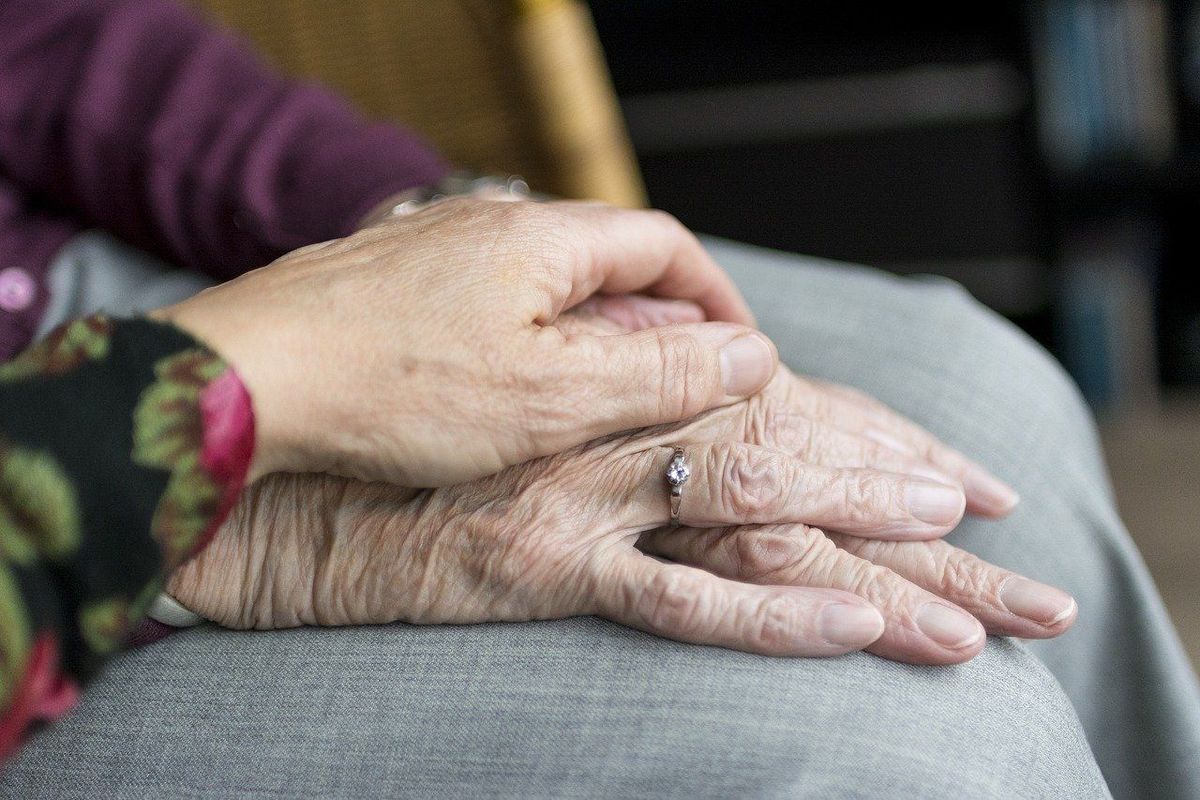The Pros and Cons of Hospice Care
Learn about the pros and cons of hospice care. Seniorly can help you understand hospice care and whether it’s the right choice for your family.

Hospice care (sometimes called end-of-life care) can be an intimidating and uncomfortable topic of discussion. For many families, even considering hospice care can introduce a wave of heavy emotions to a complicated and difficult situation.
However, hospice care is a powerful tool for improving the quality of life at the end of one’s life. Studies have shown that cancer patients who entered hospice care had greater satisfaction with their care, increased sense of peace and well-being, and reduced anxiety.
Finding the right time for hospice care
Only medical professionals can tell you whether the time is right to consider hospice care; usually, doctors will recommend hospice care if they determine an individual has six months or less left of their life.
We will explain some of the pros and cons of hospice care, though you should also keep in mind that you can leave hospice care to start pursuing curative care if you prefer.
To summarize, hospice care is a type of care offered to people who are approaching the end of their lives. This type of care focuses on the patient's comfort and maximizes the time they have left with family members and loved ones.
Curative treatments for their condition are stopped (unlike palliative care, where they continue alongside prioritizing comfort), and all focus is shifted to alleviating the patient's pain and discomfort as much as possible.
Hospice care can take place in care facilities or at home, though most patients prefer care in their homes, if possible.
It is important to note that hospice care is not just for people with a terminal illness; people without illness can seek hospice care when they are approaching the end of their lives naturally.
Pros of hospice care
- Comfort care and pain management: Hospice focuses on symptom management rather than treatment. Therefore, instead of pursuing curative treatments that are unlikely to work, especially those that can be invasive and painful, hospice care provides pain relief and comfort care. Individuals have more time free of appointments, surgeries, and recovery, and, importantly, more time free of pain.
- Fewer invasive procedures: Curative care can involve surgeries, chemo, and other treatments that are incredibly hard on the body, some with difficult or lengthy recovery periods. Hospice care means an end to these emotionally and physically taxing treatments.
- Less time spent in hospitals: When a patient decides to stop pursuing curative care it frees them to leave hospitals, which have strict protocols for the well-being of patients and staff alike. Someone entering hospice care can choose to live the remainder of their life at home, with in-home care, or in a skilled nursing facility.
- Professionals trained in end-of-life care and support: Hospice staff and volunteers are trained to help patients and their family members through this emotional time. Chaplains and other spiritual leaders can help comfort loved ones, and social workers can offer resources and advice to cope. Some of these professionals are available in hospital settings, however, with hospice care, they will have more time to help your loved one and family make the most of your time left together.
- Less expensive: In an ideal world, the cost of care would not need to be a consideration for families. Since care can be expensive, it is worth nothing that one of the advantages of hospice care is that it often costs less than curative care.
There are some less tangible advantages of hospice care, too. Hospice nurses and caregivers, whether they are caring for a loved one in their own home or at a hospice facility, are experienced in topics our culture often has difficulty discussing. You may be surprised at their compassionate insights in your loved one's final days and take comfort in their expertise.
Hospice agencies, healthcare professionals, a palliative care organization, and providers are also well-versed in supporting family and friends through the passing of a loved one, and they will have valuable resources to offer.
Cons of hospice care
The disadvantages of hospice care are very situational. Here's what you need to consider about hospice services:
- No longer eligible for experimental treatments: Clinical trials and other experimental medical treatments will not be available to hospice patients. This ineligibility may not impact your family unless your loved one was enrolled in such a trial and felt they were benefiting from it in some way.
- Hospitalization and diagnostic tests discouraged: Since curative treatment is abandoned during hospice, hospice teams will argue against hospitalization, which can be traumatic. Moreover, hospice care costs will not cover certain diagnostic tests and medical care. This con may seem obvious; however, if your loved one in hospice suffers a sudden steep decline in mental and/or physical ability, hospice staff are unlikely to recommend testing to confirm a stroke or similar event.

How to pay for hospice care
Paying for hospice care can be managed in several ways, with options varying based on an individual’s circumstances. Many private health insurance plans offer hospice and palliative care coverage as a part of their benefits. Medicare beneficiaries are also entitled to hospice benefits under Part A of the Medicare program. Medicaid also covers hospice services in most states. Additionally, some charitable organizations or non-profits offer financial assistance for hospice care to those who qualify. Those without insurance coverage can discuss payment plans for medical treatments with the hospice provider.
Choosing the right hospice care providers
If you or your loved one decide that hospice care is right for your situation, you will meet with an interdisciplinary hospice team that will help you determine the next steps, as well as prioritize the patient's needs.
Here is a resource to help identify the various hospice and palliative care services in your area. Embarking on the search for hospice care for a cherished loved one is a profound undertaking that necessitates both practicality and compassion.
By taking the time to thoroughly assess their needs, preferences, and goals while also considering the available resources and expertise in your community, you can make an educated choice that ensures their comfort and well-being during this sensitive phase of life.
Hospice care extends far beyond medical assistance; it is a testament to the human spirit and the value we place on preserving dignity and quality of life.As you navigate this complex process, remember that you are not alone. There are compassionate professionals who are devoted to guiding you and offering support every step of the way.
Through open communication, empathy, and a commitment to providing holistic care, you can provide your loved one with the solace, respect, and peace they deserve as they approach the end of their journey.
Works consulted:
Marlena del Hierro earned her Master of Arts degree in Gerontology from San Francisco State University and her Bachelor of Arts degree in Human Development from California State University. She also serves in an advisory capacity for Jukebox Health. Marlena is a vocal advocate for evolving the aging paradigm, and is a frequent contributor to public discussions about aging. She has served as a resource for media outlets like WGBH, FOX News, CNBC and the Today Show.
To learn more about Seniorly's editorial guidelines, click here.
Sign up for our Healthy Aging Handbook
Seniorly’s Senior Living experts created a comprehensive handbook to help people age happily while ensuring they love where they live. Enter your email address below to receive your copy and learn more about Healthy Aging and Senior Living.*
*By submitting your email address above, you consent to receive occasional email communications from Seniorly, including educational content and tips, newsletters, and other relevant updates and offerings. You can unsubscribe at any time and we will never sell or distribute your email address to a third party. You can view our Privacy Policy here.
